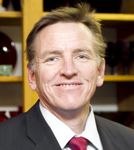 Over the last several years, Americans have consumed social media applications at a record pace and are allocating more and more of their waking hours on sites like Facebook and Twitter.
Over the last several years, Americans have consumed social media applications at a record pace and are allocating more and more of their waking hours on sites like Facebook and Twitter.
“When it comes to election cycles, they’re spending increased amounts of time using social media sites to learn about their favored politicians on their online profiles. They receive regular updates in their feeds after they follow or like them,” said Lisa Loeffler, owner of Flagstaff-based Genuine Media, a firm that provides social media and integrated marketing solutions.
“These [social media] communities provide political candidates a direct connection to their supporters, volunteers, donors and potential voters to share their messages and platforms without disruption and allow them to develop strong relationships and two-way discussions that aren’t possible through traditional communication and advertising formats,” Loeffler said.
But, the question is: Are the candidates with the most friends on social marketing sites more likely to win an election?
No, at least not as evidenced by past election cycles, according to Paul Bentz of High Ground Public Affairs who helped manage Governor Jan Brewer’s election and transition into the office.
“In that respect, it was used to communicate with folks with what was going on with the transition, major announcements and give people the chance to ask questions,” he said.
During the last election, Brewer had 350,000 followers on Facebook.
“That’s a pretty hefty following,” he said.
As in Brewer’s case, she has a lot of friends, but not all of them are from Arizona or Arizona voters, Bentz says.
He and his company provided content and video to get the word out there on behalf of Brewer.
Still, who has the most friends does not al- ways have an influence on who wins elections. He used the example of the gubernatorial
race between Meg Whitman and Jerry Brown in California.
“She had significantly more followers than Jerry Brown. The number of followers does not always translate to victory, but it can trans- late into influence.”
But, he says, as time passes, the sites seem to have more and more influence on voters.
“It’s funny because it went from a thing you did on the side and now is a pretty essential [tool for] providing content for folks out there,”
Bentz said. He believes the emphasis on social media started getting more intense in the 2008 election.
“President Obama used it pretty effectively in the 2008 election,” he said.
Just about everyone had Facebook or Twitter accounts by then. Bentz said he believes that social media sites are replacing the traditional press releases.
Anthony Smith, who handled logistics for Congressman-elect Dr. Paul Gosar, says using social media certainly didn’t hurt. “It was a good way for people to be informed about where he was every day out on the campaign trail,“ he said. “We would do about three tweets a day.”
He says, for instance, that a larger article written by Gosar that would not fit on a tweet could be put on Facebook and then linked to Twitter.
Locally, Joe Haughey, an associate broker at Flagstaff Top Producers Real Estate, ran and lost the election against Flagstaff Mayor Sara Presler. He says social media helped in some ways and not in others. He had both Twitter and Facebook accounts during the race and he would tweet information, but did not like being limited in the number of words allowed.
Haughey, who spent eight years on the Flagstaff City Council, says Facebook was more useful in that he could post photos and messages to get the word out and that his 400 followers were able to provide feedback.
Indeed, as Loeffler says, social media platforms allow political candidates and potential voters to develop strong relationships that are often limited by traditional communication methods. Information is knowledge, and in the case of politics, providing information is essential, especially during elections. Creatively using social media is an effective and efficient method to make that happen. FBN







